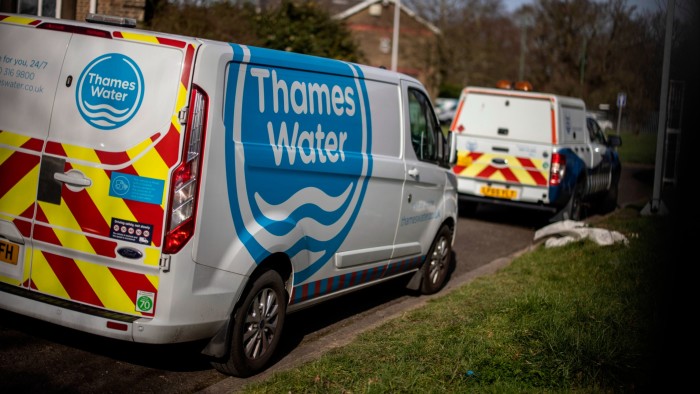Unlock the Editor’s Digest for free
Roula Khalaf, Editor of the FT, selects her favourite stories in this weekly newsletter.
KKR has submitted a preliminary £4bn equity bid to take a majority stake in Thames Water, as the US private equity firm looks to position itself as the most credible potential owner of the debt-laden water provider.
News of the offer comes a day after Thames Water, the UK’s largest water utility, won a critical reprieve in London’s High Court, allowing it to raise up to £3bn in high-cost debt. The utility has said Tuesday’s approval will give it breathing room to raise billions of pounds more in equity from new investors.
KKR was one of several parties that submitted a non-binding offer in a bidding round earlier this month, according to people familiar with the matter. The firm offered to inject new equity in a deal worth about £4bn, they said.
In contrast to some of the other bidders, KKR did not plan to break up Thames Water or sell off assets to raise funds for its bid, the people added. KKR was also seeking to keep Thames Water out of the government’s special administration regime, they said. It was instead aiming to agree a consensual restructuring of the utility’s near £20bn debt pile.
KKR and Thames Water declined to comment on the non-binding offer, which was first reported by Bloomberg.
KKR is one of several parties interested in Thames Water. Others include Castle Water, an independent supplier of water to businesses, and CK Infrastructure, part of Hong Kong’s CK Hutchison group.
Both CK Hutchison and KKR are already shareholders in Northumbrian Water, with 75 per cent and 25 per cent stakes respectively. Those holdings could complicate any Thames Water bid because of the need to appease competition regulators.
Northumbrian Water confirmed on Tuesday that it would appeal to the UK’s Competition and Markets Authority over its pricing settlement with the water regulator Ofwat. It was one of six water companies, including Thames Water, to lodge such appeals.
KKR’s non-binding offer for Thames Water was submitted by a February 10 deadline in a process overseen by Rothschild & Co. By the end of the month, it should have selected bidders it believes are credible and can progress to the next stage.
Other bidders included Covalis Capital, an infrastructure-focused investment fund, which in contrast to KKR is planning to break up the sprawling utility. Thames Water serves 16mn customers in and around London, nearly a quarter of the UK population.
Covalis’s bid has caused friction with the utility and its advisers because of its holding of Thames Water’s lower-ranking class B bonds. Covalis had criticised the way that Rothschild and Thames Water managed the equity bidding process, it was disclosed in court hearings earlier this month.
Rothschild is aiming for bidders to submit binding offers subject to fuller due diligence in the second quarter of 2025, according to a letter disclosed in the court proceedings. It has estimated that this second bidding phase should take eight weeks.
Evidence in the High Court case revealed that Thames Water’s senior “class A” creditors were preparing a “creditor bid” for the utility in the event the Rothschild process did not succeed. Participants in that potential bid could include US hedge funds Elliott Management and Silver Point.
Equity bidders for Thames Water are likely to seek a partial debt writedown from the utility’s lenders to bolster its strained balance sheet. David Burlison, a banker at Jefferies advising the class A lenders, told the court earlier this month that, if bidders demanded a “big haircut” on the debt, it would be a “more difficult discussion”.
Read the full article here




